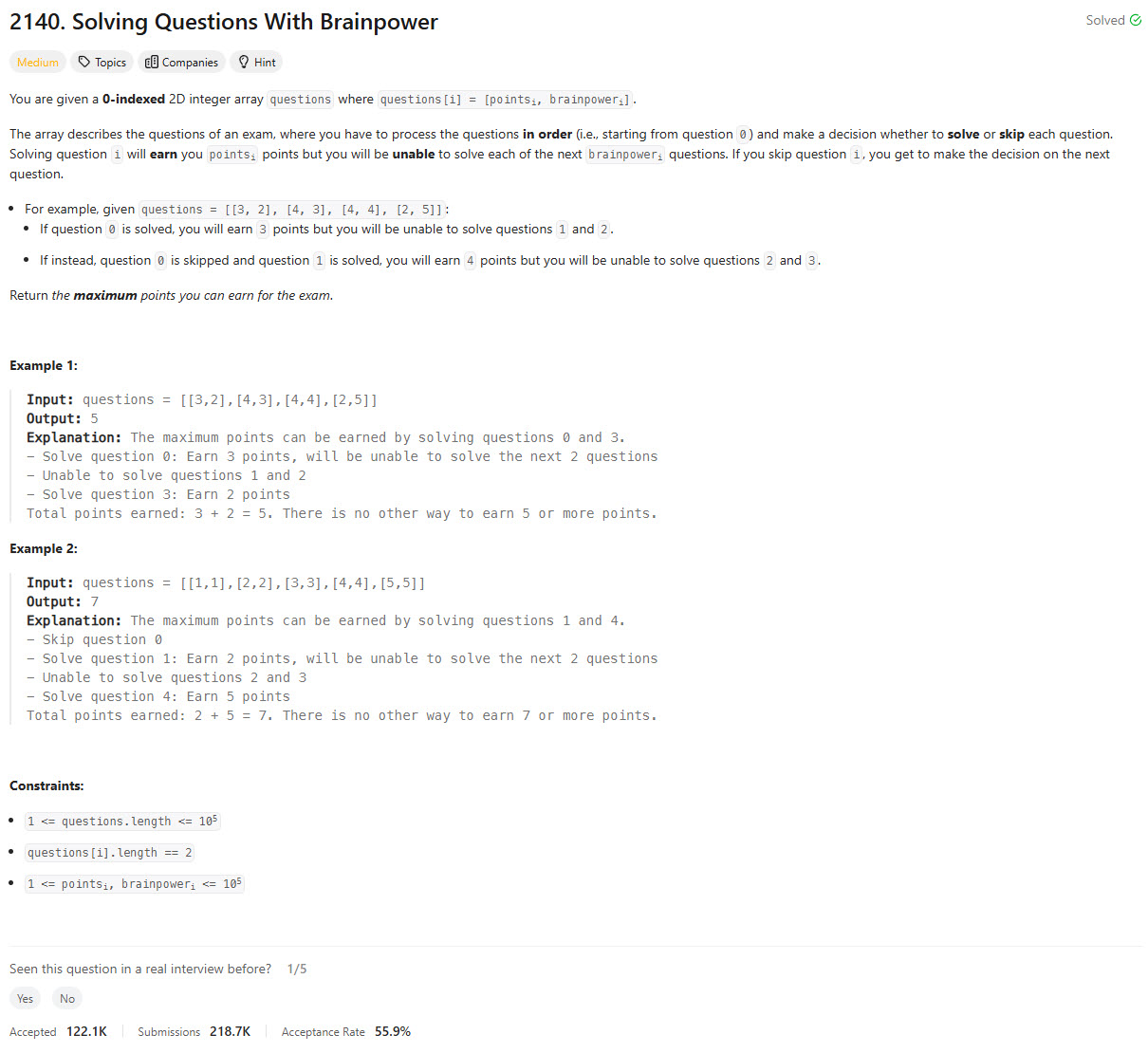Problem Statement

Memoization Approach [MLE]
class Solution:
def mostPoints(self, questions: List[List[int]]) -> int:
N = len(questions)
memo = {}
def helper(i, points):
if i >= N:
return points
if (i, points) in memo:
return memo[(i,points)]
point, brainpower = questions[i]
solve = helper(i + brainpower + 1, points + point)
skip = helper(i + 1, points)
memo[(i, points)] = max(solve, skip)
return memo[(i, points)]
return helper(0, 0)
Improved Memoization Algorithm - Top down
class Solution:
def mostPoints(self, questions: List[List[int]]) -> int:
N = len(questions)
memo = {}
def helper(i):
if i >= N:
return 0 # Base case: No more questions to answer
if i in memo:
return memo[i]
point, brainpower = questions[i]
# Option 1: Solve the question
solve = point + helper(i + brainpower + 1)
# Option 2: Skip the question
skip = helper(i + 1)
memo[i] = max(solve, skip)
return memo[i]
return helper(0)
Dynamic programming Approach - Bottom up
class Solution:
def mostPoints(self, questions: List[List[int]]) -> int:
N = len(questions)
dp = [0] * N
questions.reverse()
for i, [point, brainpower] in enumerate(questions):
prev_point = 0
if i - brainpower - 1 >= 0:
prev_point += dp[i - brainpower - 1]
dp[i] = max(dp[i - 1], prev_point + point)
return dp[-1]
